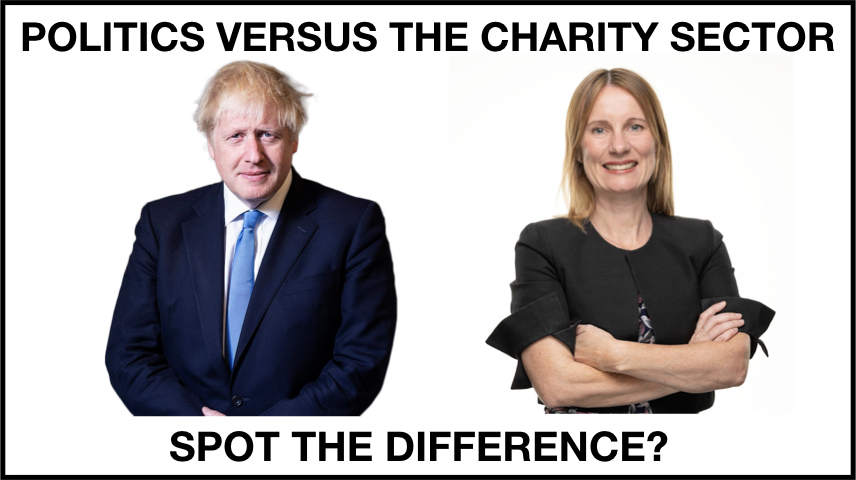
The public have long been cynical about the honesty of politicians, and recent events in Westminster and in Downing Street have done nothing to change that cynicism, likely only embedding it deeper.
It is a sad fact that with cynicism comes almost an acceptance of dishonesty in politics. While some are moved to anger, many sit idly by and simply shrug their shoulders and continue about their lives.
But what has this to do with the charity sector?
The public have a right to expect honesty and integrity from charities. Many, blindly, believe that the sector is an honest one, one driven by integrity and managed by good people, people with morals.
And, for most of the sector, that may well be true. But how many dishonest charities would it take to undermine confidence in the rest?
If one of the nation’s largest charities has displayed dishonesty, hypocrisy, poor morals, low integrity and turned a blind eye to fraud, is that an alarm bell for the whole sector? And, if so, what would the sector do to protect itself?
It is not a theoretical question. For over a quarter of a century Cancer Research UK has told a range of untruths about the origins of the Race for Life. For 25 years successive CEOs, Chairmen, and others have hypocritically accepted recognition for their own work, including knighthoods and other honours, while denying any recognition (let alone thanks) for the man who created the Race for Life.
What does this say about the integrity and morals of that charity and those running it?
And when it emerged that it was, initially, a Cancer Research UK employee who stole the idea for the Race for Life from Jim Cowan (its actual creator), and who covered up her tracks before fraudulently claiming to be the event’s originator on her CV, what did Cancer Research UK do? They looked the other way. No comment. Nothing to see here.
That same individual is now in the employ of two other charities, one well known (Barnardos), the other less so (Cultivating Mindfulness). Both are aware of her dishonest and fraudulent past. Both choose to look the other way.
There are serious questions to be asked of those tasked with running these charities. However, their lack of action to date suggests that they may be lost causes; too far gone down a dishonest and immoral pathway.
But those serious questions can be asked of other charities, aware of some (if not all) of the above. What does their silence say about them? About their integrity?
They might point to those responsible for ensuring the honesty and integrity of the charity sector in the UK and ask why they fail to act? But looking the other way while expecting others to act is not an indicator of moral fortitude, of integrity.
And, from those who do have ultimate responsibility for the sound running of the sector? Silence.
The Charity Commission? Silence.
The Fundraising Regulator? Silence.
The NCVO? Silence.
They choose to look the other way. They all state the importance of integrity. But none are prepared to act with integrity and properly investigate Cancer Research UK’s quarter of a century of lies and deceit, of covering up the origins of their largest, most successful fundraising event.
The event’s creator, Jim Cowan, deserves better than that. The British public deserve better than that.
Or are we to sit idly by, shrugging our shoulders and continuing with our lives while the reputation of this vital sector gets tarnished by the dishonesty of a few?
Those responsible need to act now. For once the confidence of the British public is lost, once the general view becomes one of ‘if one is at it, they’re all at it’ then the battle is lost.
There are too many good, moral, important charities run with integrity by decent people to allow that to happen. But looking the other way won’t solve the issue for any of them.
In the Race 4 Truth, Cancer Research UK are lagging behind.
